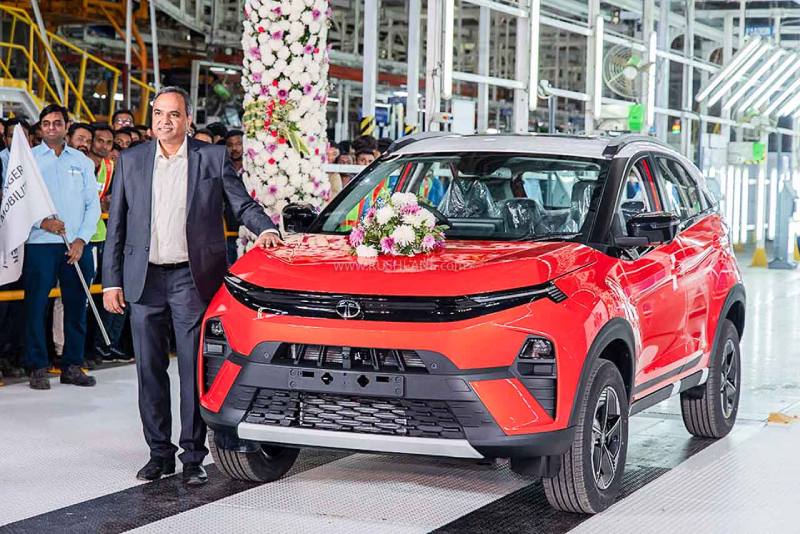From Ford Sanand plant acquired by Tata Nexon, first car will be produced


Tata Motors subsidiary Tata Passenger Electric Mobility Ltd. (TPEM) has formally started production at its recently purchased factory in Sanand, Gujarat, marking a key milestone for the Indian automotive industry. The state-of-the-art plant, originally belonging to Ford India, witnessed the historic rollout of the first Tata-branded car, their best-selling Nexon SUV.
Sanand Facility Retooling in Record Time: A Rapid Transformation
After paying over Rs 750 crores for the factory in January 2023, Tata Motors made a calculated decision to increase the size of its manufacturing capacity in response to the nation’s increasing demand for electric cars (EVs). Now Tata Motors’ second plant in Gujarat, the Sanand facility occupies an impressive 460 acres and is used to manufacture both ICE and EV vehicles.
The first car to roll out of the new facility was witnessed by Shailesh Chandra, Managing Director of Tata Motors Passenger Vehicles Limited & Tata Passenger Electric Mobility Limited, who expressed his satisfaction in the event. He credited the feat to the rapid retooling of the factory within a remarkable 12-month timeframe. Chandra conveyed his appreciation to the Gujarati government for their assistance and recognized the critical part the workers played in reaching this goal.
“With existing capacities near saturation, this new facility will unlock an additional state-of-the-art manufacturing capacity of 300,000 units per annum, scalable to 420,000 units per annum,” Chandra said, underscoring the significance of the new plant in Tata Motors’ growth strategy. He emphasized Tata Motors’ dedication to maintaining momentum through proactive investments in electric vehicle technology and a strong pipeline of future-ready “New Forever” products.
Growth Path: Tata Motors’ Plans for the Sanand Plant
The plant, which is located in GIDC Sanand, an industrial hub, benefits from a robust supply network. The facility establishes a new standard for the industry with its high levels of automation and state-of-the-art technology in all four of its core shops—final assembly, paint, body construction, and stamping.
The press shop, which received new dies for stamping critical skin panels, the weld shop, which received improvements to all lines and more robots, and the paint shop, which received improved handling systems and internal robotic painting setups, are among the main retooling and technological enhancements. Additionally, handling and end-of-line systems were modified at the assembly shop.
Tata Motors, which already employs over a thousand people, intends to add another thousand positions in the next three to four months in line with plans for manufacturing ramp-up. The corporation offers diploma, bachelor’s, and master’s degree programs as part of its investment in upskilling its employees. Tata Motors’ dedication to sustainability is further demonstrated by the facility, which has a 50 KW solar rooftop installation and plans to turn water positive by December 2024.
The start of production at the Sanand plant solidifies Tata Motors’ standing as a major participant in the Indian automotive industry, especially in the rapidly expanding electric car market. The plant’s successful retooling and modernization highlight the company’s dedication to innovation, sustainability, and satisfying the changing demands of the Indian auto industry.


